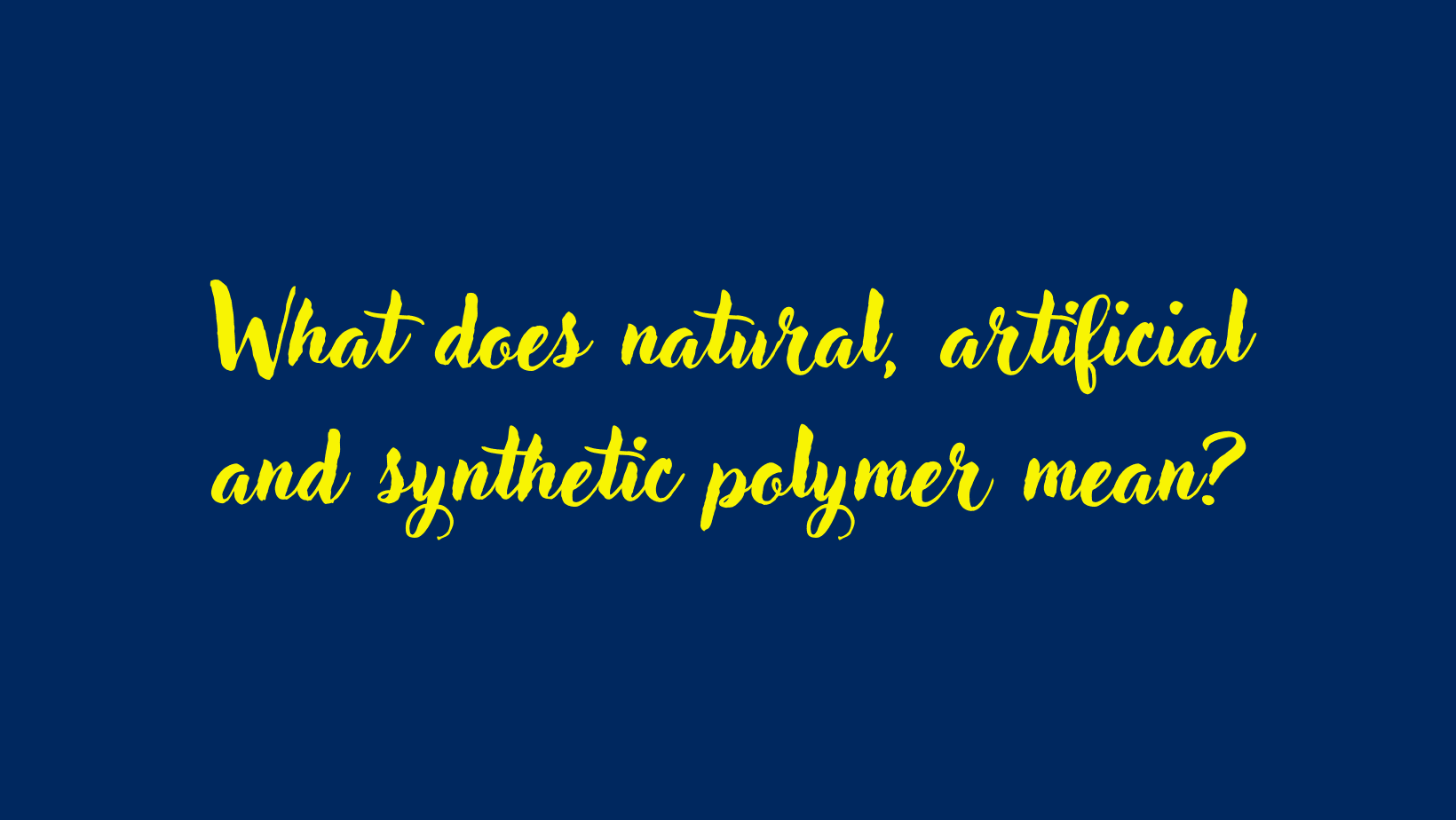What does natural, artificial and synthetic polymer mean?
There are three categories of polymers: natural, artificial and synthetic polymers. These categories are produced differently.

Natural polymers are spontaneously synthesized by living organisms. Hair, wool and silk are made of proteins; cellulose, starch and chitin are made of polysaccharides; DNA is made of nucleic acids.
Proteins, polysaccharides and nucleic acids are examples of natural polymers.
An important example of natural polymer is cellulose, composed of many sugar units, even up to 3500. Cellulose is the main constituent of plant fiber and is the most abundant polymer on Earth.

Artificial polymers are obtained by the chemical modification of natural polymers.
Synthetic polymers are man-made polymers and are often derived from oil. They are often referred as “plastics”. Common examples of plastics are polyolefins, such as polyethylene and polypropylene and nylons.
